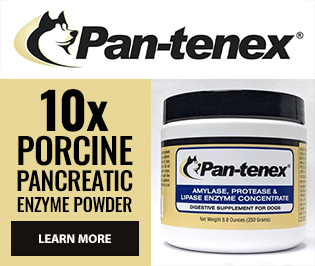Rough-Coated Collies are known for their intelligence, loyalty, and luxurious coats. But beneath that graceful exterior, they often come with delicate digestive systems. If you have a Rough-Coated Collie that seems sensitive to food changes or experiences irregular stools, gassiness, or appetite swings, digestive enzyme support may be worth exploring. These enzymes can play a crucial role in supporting nutrient absorption and easing common stomach discomforts in this breed.
Understanding Digestive Sensitivities in Rough-Coated Collies
Collies are genetically prone to certain digestive difficulties, including trouble breaking down fats and proteins, irregular bowel movements, and issues with nutrient absorption. Even with high-quality food, they may not be extracting the nutrients they need, which can lead to bloating, lethargy, or even weight loss over time.
Adding digestive enzymes to each meal helps break down fats, proteins, and carbohydrates before your dog’s digestive tract has to do the heavy lifting. This process improves how well nutrients are absorbed and often reduces signs of digestive distress.
Signs Your Rough-Coated Collie May Benefit from Enzymes
- Chronic loose stool or inconsistent bowel movements even when on a stable diet.
- Excessive gas or bloating after meals, even with limited ingredients or sensitive formulas.
- Unexplained weight loss or difficulty maintaining weight despite a healthy appetite.
- Dry coat, flaky skin, or excessive shedding which may indicate malabsorption of key nutrients.
- Unusual stool appearance such as gray, greasy, or undigested food particles.
If your Collie is experiencing one or more of these symptoms, enzyme supplementation with a high-potency product like Pan-tenex may help support more efficient digestion and nutrient use.
Why Enzymes Matter More for Sensitive Breeds
Breeds like Rough-Coated Collies tend to have more reactive systems. Stress, minor dietary changes, or low-fat meals may all trigger flare-ups. Digestive enzymes offer consistency, helping your dog process food the same way at every meal. With improved digestion, many dogs see more energy, better coat quality, and more regular stool.
Enzymes like those found in Pan-tenex are especially useful because they offer 10x enzyme potency compared to standard 6x or 8x products. That means smaller servings go further, reducing the amount of powder needed per meal and saving money over time.
Meal Planning for Collies with Digestive Challenges
In addition to enzyme support, meal preparation plays an important role. Rough-Coated Collies often do better with predictable meals and mild ingredients that are easy to digest. Here are a few strategies to consider:
- Feed smaller, more frequent meals to reduce digestive strain and promote better absorption.
- Stick to one protein source (like turkey or chicken) and introduce new foods slowly.
- Add moisture to meals with warm water or broth, especially when mixing in enzyme powder. Learn more in our guide: What If My Dog Will Not Eat Their Food with Pancreatic Enzymes?
- Pre-mix enzyme powder and let it sit on food for 10 to 15 minutes before serving. This helps the enzymes begin working outside the body.
- Track results using the Dog Enzyme Digestive Health Stool Tracker to monitor how your Collie responds to dietary changes.
Final Thoughts
If your Rough-Coated Collie seems to struggle with digestion, adding a digestive enzyme like Pan-tenex may be one of the most effective tools you can use. These dogs often do best on a predictable, enzyme-supported routine with gentle foods and limited additives. Over time, the right combination of enzymes and diet can help them absorb more nutrients, reduce digestive upset, and maintain a healthy, active lifestyle.
Explore more Help Articles on breed-specific digestion and feeding routines, or contact us with any questions about finding the right routine for your Collie.

